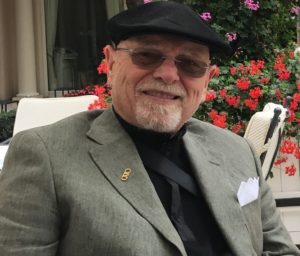Are you familiar with the Claremont Institute? Ryan Williams, President of the Claremont Institute explains that the Institute is making real accomplishments in its efforts to protect the American way of life. He writes:
The Claremont Institute is providing strong intellectual leadership for the new Right and is chalking up real accomplishments in its work to preserve constitutionalism and the American way of life. And people across the political spectrum are taking note.
Ryan Williams, President
The Claremont Institute.
Claremont’s Mission & Overview page describes the Institute as follows:
The mission of the Claremont Institute is to restore the principles of the American Founding to their rightful, preeminent authority in our national life.
Overview
To return to limited government, conservatives must return to the principles of the American Founding. The Claremont Institute provides the missing argument in the battle to win public sentiment by teaching and promoting the philosophical reasoning that is the foundation of limited government and the statesmanship required to bring that reasoning into practice.
Who We Are
We are a think tank that teaches, writes, and litigates. Since our founding in 1979, our strategy has been to teach the principles of the American Founding to the future thinkers and statesmen of America. Those principles include the foundational doctrines of natural rights and natural law found in the Declaration of Independence; the ingenious political science of the Constitution; and the popular constitutionalism or reverence necessary for the maintenance of free government.
What We Do
Rather than concentrate on policy like many other think tanks, the Claremont Institute teaches the principles and ideas that shape policy over time to the few that will go on to positions of leadership in media, politics, law, speechwriting, and academia.
We teach. We educate the best and most promising young writers, lawyers, activists, academics, entrepreneurs, and public servants through our Publius, Lincoln, John Marshall and Speechwriters Fellowship programs, and engage this next generation of conservative leaders in a life-long study of the true principles of government and their application to today’s policies.
We write. We engage policy at the level of ideas in the Claremont Review of Books, our flagship quarterly publication, which aims to reawaken in American politics a statesmanship and citizenship worthy of its noblest political traditions.
We litigate. We promote the application of first principles in the Courts and amongst legal practitioners through our Center for Constitutional Jurisprudence, which files legal briefs advancing the jurisprudence of the Constitution and the Founding, and engages in strategic constitutional litigation.
If you’re willing to fight for Main Street America, click here to sign up for my free weekly email.






